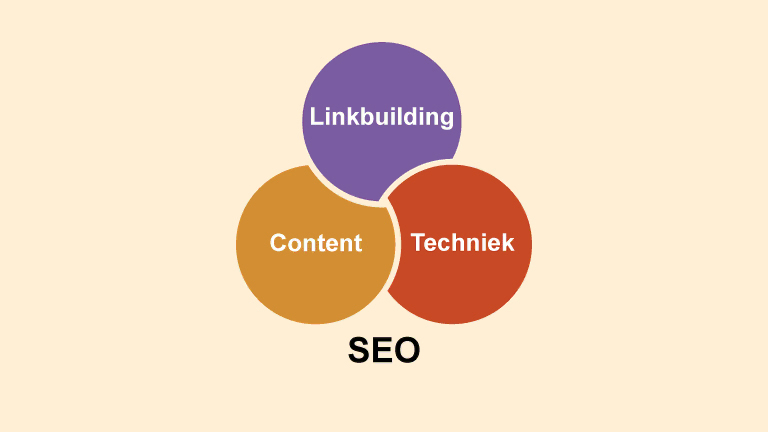What does a CRO specialist do?

Conversion Ratio Optimization (CRO) is an important part of online marketing. It focuses on increasing the percentage of visitors to a Web site who take desired actions. A CRO specialist’s job is to improve the effectiveness of a Web site through various strategies and techniques. He should provide more leads, sales or increases in other key performance indicators.
What does a CRO specialist do?
A CRO specialist has expertise in analyzing Web site data. He identifies areas for improvement and applies solutions to increase conversions. These specialists use various tools and methods such as A/B testing, user feedback and heat mapping. This gives them insight into how visitors interact with a Web site and how to improve these interactions.

Why is CRO so important?
In today’s digital age, where online competition is increasingly fierce, optimizing conversion rates is critical for companies looking to develop. CRO not only helps improve the efficiency of a Web site but also plays a key role in improving the user experience. This, in turn, leads to increased customer satisfaction and brand loyalty.
Want to read more about CRO specialists?
- Conversion rate guide of 2024
- Conversion
- Conversion rate optimization for a web shop
- The influence of SEO on UX
- The psychology of search intent
- Increasing the conversion rate of a website
Techniques to optimize conversion
Conversion optimization includes various techniques, such as speeding up the website, simplifying navigation, optimizing forms and personalizing the user experience. Psychological triggers such as urgency, scarcity and social proof also contribute to higher conversions. Careful measurement and analysis of each fitting are essential to ensure effectiveness.
User experience (UX) and customer-centric design
CRO specialists must have extensive knowledge of user experience (UX) and customer-centered design. This means designing intuitive and user-friendly interfaces and ensuring that the website meets the end user’s needs and expectations. With a strong focus on UX, a CRO specialist can optimize the customer journey. This can ultimately result in higher satisfaction and increase in conversion rate.
A/B testing and other experiments
A/B testing is the core of conversion rate optimization. In this method, two versions of a Web page or element (for example, a call-to-action button) are tested against each other to determine which performs better. Experiments also sometimes go beyond A/B testing. They can include multivariate testing, where multiple variables are tested simultaneously. The ultimate goal is always to make the right decisions based on data, aimed at increasing conversion.
Combination with other marketing forms
To achieve the most optimal results, CRO is best used in conjunction with SEO (Search Engine Optimization) and SEA (Search Engine Advertising). Whereas SEO focuses on increasing online visibility and higher rankings in search engines, SEA concentrates on paid advertising campaigns. CRO in turn optimizes the experience of visitors . This is how CRO specialists maximize conversions. An integrated approach ensures that all facets of online marketing are used effectively, This can ensure an improvement in the overall performance of a website.
The importance of a holistic approach
Take a holistic approach. It’s always about the big picture. In digital marketing, CRO does not stand alone but is part of a broader plan. This involves user experiences, customer journeys, brand consistency and cross-channel marketing strategies. By integrating all facets, companies develop a cohesive and effective online strategy. This can result in better performance and higher ROI.
Skills of a CRO specialist
A good CRO specialist possesses strong analytical skills, allowing them to interpret large amounts of data and translate them into actionable insights. This allows them to identify performance indicators, recognize patterns in visitor behavior and develop and test new strategies.
How can you find a good CRO specialist?
When selecting a good CRO specialist, there are several important points to assess. Look carefully at their experience and previous successes in similar projects. It is important that they have strong analytical skills and are familiar with a number of CRO tools and techniques. Moreover, it is important that they communicate well and work together. A good CRO specialist should excel in:
- Analytical skills: a good CRO specialist must analyze data effectively to gain insights about website usage and customer behavior.
- A/B testing and experimentation: experience with running A/B tests and other experiments is to determine which adjustments would improve conversion.
- User experience (UX) knowledge: knowledge of UX principles is important for designing websites that are intuitive and attractive, which in turn can lead to higher conversion rates.
What can you expect from a CRO specialist?
If you work with a CRO specialist, they will thoroughly analyze your website, identify areas for improvement and suggest experiments to boost performance. You can expect them to have good communication skills, creativity and flexibility. In addition, they should give you regular updates based on the test results.
What does a CRO specialist’s roadmap look like?
A roadmap for a conversion rate optimization process can look like the following:
- Set goals and KPIs: determine what goals you have and what Key Performance Indicators (KPIs) you will use to measure the success of the process.
- Data collection and analysis: collect data about your current Web site performance. Analyze user behavior, conversion paths and any bottlenecks.
- User testing and feedback: conduct user testing and gather feedback to understand users’ experiences and needs.
- Develop hypotheses: develop ideas based on the collected data and feedback on how to improve conversion.
- A/B testing and experimentation: test your hypotheses through A/B testing or other experimental methods.
- Analyze and adjust results: analyze test results, learn, adjust and optimize.
- Implement and optimize: implement the successful changes on your website and continue to continuously optimize based on new insights and data.
- Repeat the process: CRO is an ongoing process. Repeat the steps regularly to keep improving.

The future of conversion rate optimization
The future of CRO will increasingly focus on personalization and artificial intelligence. Personalization will continue to evolve using advanced algorithms for unique experiences per user. AI and machine learning will be used for more accurate predictions about user behavior and automated optimizations. Moreover, integrating CRO strategies with new technologies such as augmented reality and voice search is becoming increasingly important. The future is always in flux and certainly in the field of CRO.
Summary
Conversion Ratio Optimization plays a central role in digital marketing. It focuses on improving a website’s performance by increasing conversions. A successful CRO journey combines analytical skills, A/B testing and understanding of user experience (UX). CRO is an ongoing cycle of testing, analysis and optimization. By applying these principles, companies improve their online presence, which can result in higher conversion rates and business success. In the future, CRO will increasingly use new technologies such as AI, machine learning, augmented reality and voice search to ensure an increasingly personalized visitor experience.






